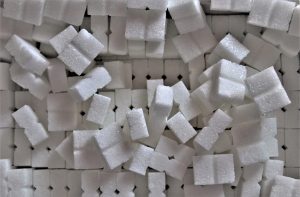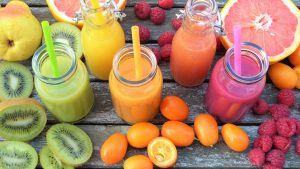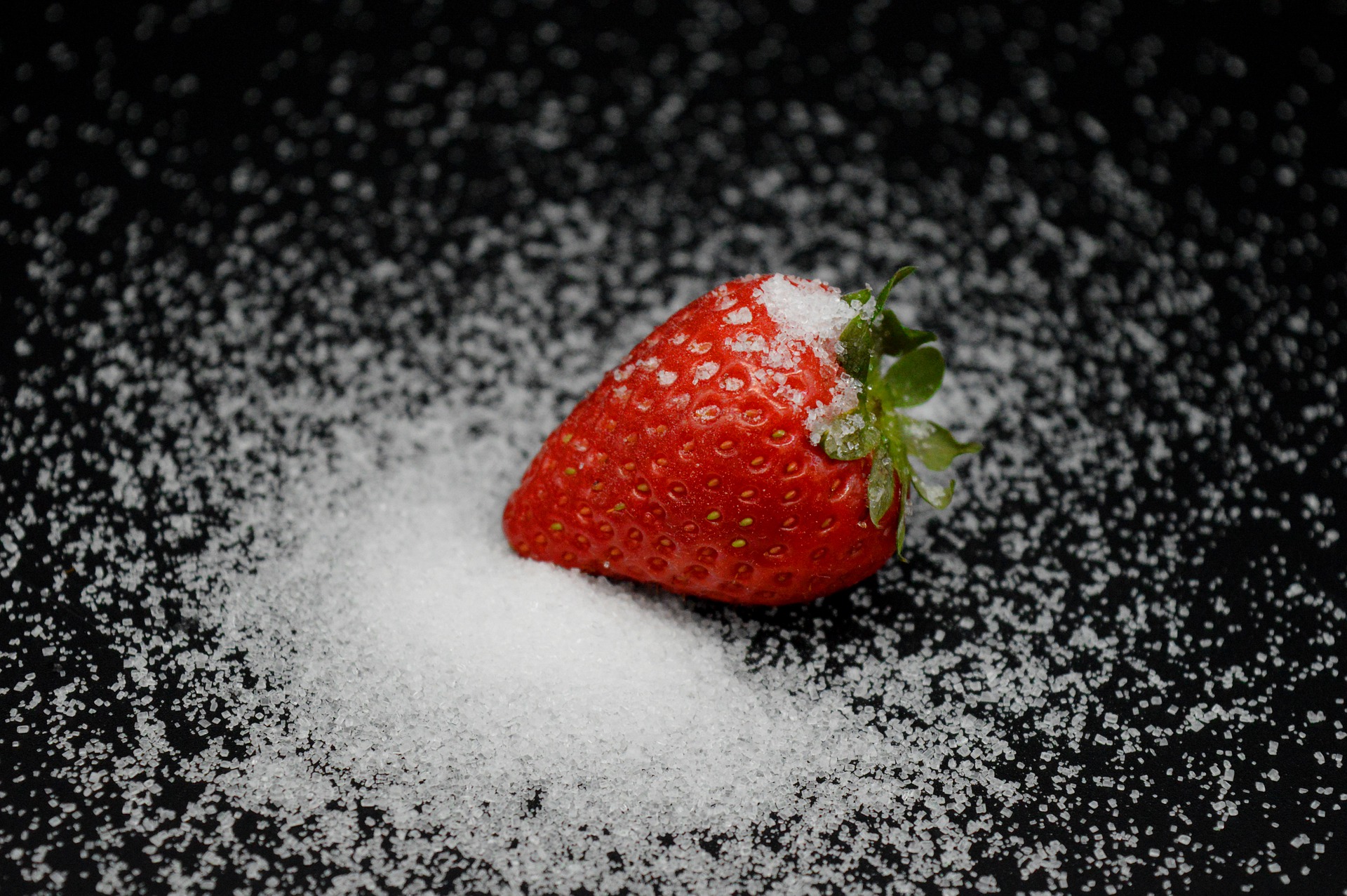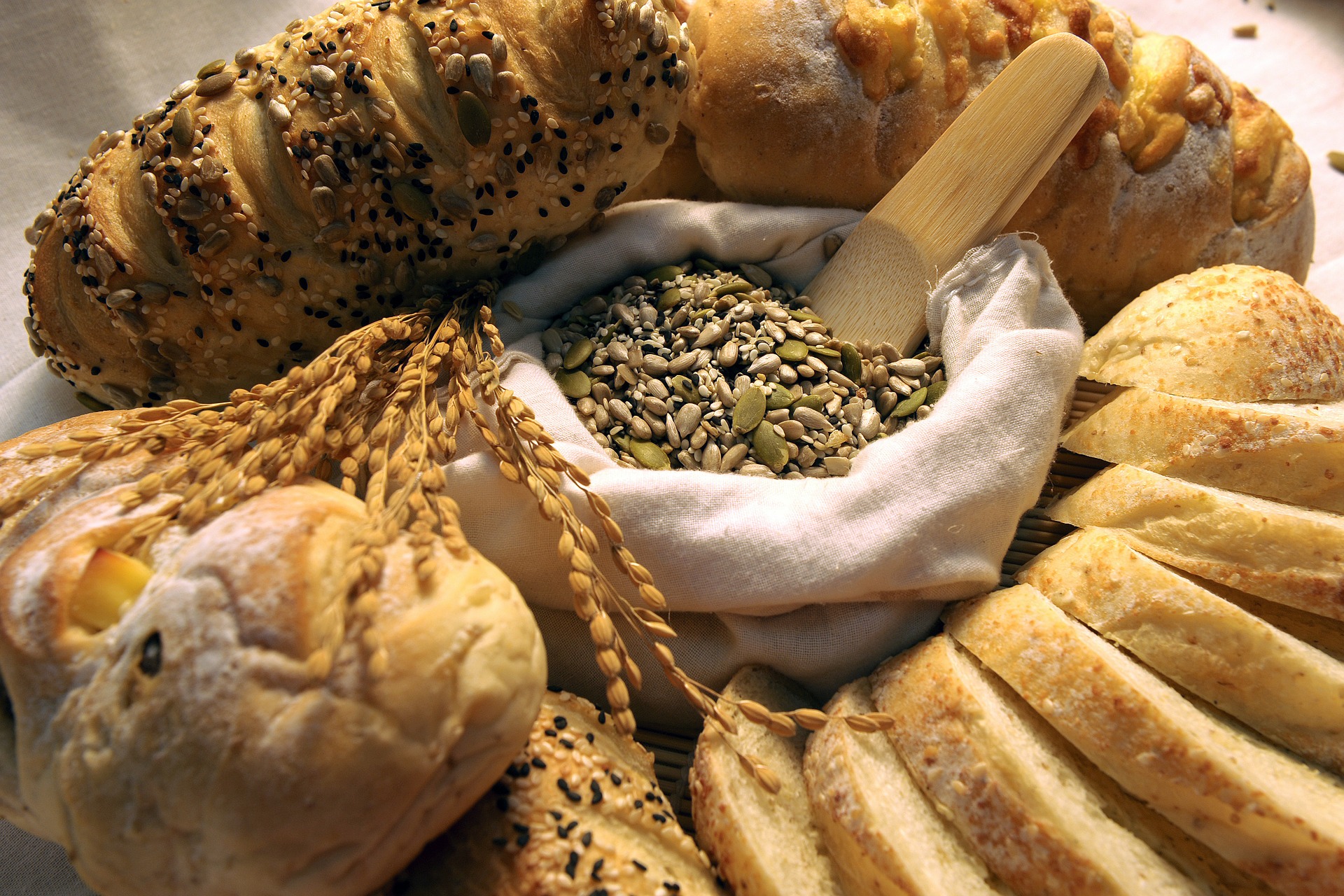Sugar is present in all the foods that contain carbohydrates, including whole foods like vegetables and fruits. However, sugars are not always healthy and don’t enjoy a good reputation in fitness circles. This begs the question: can you eat sugar on a plant-based diet?
It can be hard to avoid sugar at all, especially on a plant-based diet. Most fruits and vegetables contain natural sugars. But those sugars are not necessarily bad, so it should be fine to consume them.
There are negative impacts of sugars, especially the refined ones. Even though average sugar intake should amount to 10% of the daily calorie intake, many people unknowingly consume way above that. Even with a plant-based diet, you have to be mindful of the sugars you eat.
What is Sugar Exactly?
Sugar is the molecule carbohydrates are made of. So, in essence, carbohydrates are mostly sugars. The carbs are divided into two categories based on the structure of sugar molecules. These are simple carbs and complex carbs.
Simple carbs or simple sugars can be a monosaccharide (single sugar molecule) or disaccharide (two sugar molecules). Complex carbs are polysaccharides made of many simple sugar molecules. When we talk about sugars in food occurring naturally or those that are produced commercially, we’re mostly talking about these simple sugars.
Types of Sugars
There are various types of sugars based on their molecular structure. Some of them are monosaccharides that the body does not break any further. Then you have your disaccharides, which contain two sugar molecules. The body breaks the two molecules for energy.

Here are the six monosaccharides and disaccharides, in other words, types of simple sugars:
Glucose
Glucose occurs naturally in fruits and vegetables. However, it’s also present in many processed foods, like syrups, sodas, candies, and desserts.
Fructose
Fructose is a monosaccharide mainly present in fruits. This fruit sugar is easily digestible and serves as a source of energy.
Galactose
The source of this monosaccharide is dairy products like milk, butter, cheese, and yogurt. It’s a product of lactose, the sugar in these dairy products.
Sucrose
Sucrose is a disaccharide made of glucose and fructose. It’s the table sugar we use as a sweetener for drinks and desserts. It’s derived from sugarcane and added to foods.
Maltose
Maltose is a disaccharide made of two glucose molecules. It’s present in malt, so you’ll find this sugar in beer and other malt drinks.
Lactose
Lactose is the disaccharide sugar present in milk and other dairy products. It’s a combination of galactose and glucose.
Refined vs. Natural Sugars
When talking about consuming sugars, it’s important to discuss refined sugar. Refined sugars are essentially obtained from natural sugars found in vegetables, fruits, milk, and nuts. Table sugar and HFCS (high-fructose corn syrup) are the two most common refined sugars.

Refined sugars dominate the food industry today, especially in America, where you can find them in the ingredients of so many products. This type of sugar is notorious for its many negative effects on health.
Negative Impacts of Refined Sugar
This sugar finds its way into so many foods that sometimes you don’t even know you’re consuming it. This is why it’s crucial to understand its impact on your health.
Sugars, especially refined sugars, have long been credited to causing the obesity problem in the US. Foods such as sodas and other sugary beverages containing such sugars have been linked to obesity.

A study involving both children and adults found that sugary drinks result in an increase in weight as well as body composition, making one fat. The impact of HFCS is even more detrimental.
HFCS is resistant to the hormone leptin. This hormone tells your body when you’re full. This directly results in overconsumption of sugars, and you end up consuming way more calories and carbs than you need.
Similarly, these sugars have also been linked with heart disease. A study conducted in the US found that excessive consumption of added sugars increases the risk of heart disease as well as type II diabetes.
Refined sugar is mostly present in processed foods. This essentially eliminates it from a strictly plant-based diet. Nevertheless, it can find its way in products like pastries and ice creams, which you may feel like eating sometimes.
Advantages of Natural Sugars
Since table sugar and HFCS have such bad rap in the health and nutrition world, it often overshadows natural sugars too. Natural sugars are not always bad and have certain benefits too.
Whole foods that have natural sugars are also rich in other nutrients. So you’re not just getting empty calories, but essential nutrients like Vitamins and minerals. Technically, HFCS is also plant-based, although not a whole food, as it’s been highly processed. As such, it lacks other vital nutrients like fiber.

Fiber proves quite beneficial for processing natural sugars. It prevents the sugar from quickly entering the bloodstream. Therefore, you don’t experience sudden spikes in blood sugar when eating foods with both natural sugar and fiber.
Most importantly, natural sugars serve as the preferred source of energy for your body. You need carbs in the form of natural sugars to provide your body with fuel. Natural sugars can do that without compromising your health, unlike refined sugars.
Why Is Sugar Bad For You?
Too much sugar is downright bad for your health. Many people think sugars of all kinds are simply bad. However, the truth is that it’s the overconsumption that’s the problem.
According to a National Cancer Institute study, adult men in the US consume 24 teaspoons of sugar in a single day, on average. That amounts to 384 calories, which are nearly double the 10% calorie intake from sugars that the CDC recommends.

Many health experts believe that sugars, especially added sugars, are the reason behind obesity and other diseases.
Reasons Why Sugar Is Bad For You:
Excess Sugar Causes Weight Gain
You’re probably aware of the effects of sugar on weight. Most people who have a sweet tooth tend to have large waists. No surprise that it’s the sugars causing them to gain weight.
First of all, these are carbs and those too of not the good kind. Even fructose from fruits can cause leptin resistance sometimes, causing you to eat more than you should.
Many studies have already linked obesity with added sugars. Foods rich in added sugars result in visceral fat, which in turn, can result in life-threatening diseases.
Sugar and Heart Disease
A study published in JAMA Internal Medicine showed that a high-sugar diet increases cardiovascular disease mortality risk. The 15-year long study found that individuals who had 17-21% of their calories from sugar saw the risk of dying from heart disease increase by 35%.
Obesity can also result in cardiovascular diseases. So there’s quite a high risk if you consume a lot of sugars, especially processed ones.
Sugary drinks are especially bad, and can even cause atherosclerosis. In this disease, the arteries can clog due to fat.
Sugar and Diabetes Blood Levels
Does sugar cause diabetes? This one can be a little tricky. People assume that because high blood sugar levels are associated with diabetes, sugar must be the cause, right? Well, it turns out that excessive fat is more to blame.
According to PCRM (Physician’s Committee for Responsible Medicine), “Type 2 diabetes typically starts with insulin resistance. That is, the cells of the body resist insulin’s efforts to escort glucose into the cells. What causes insulin resistance? It appears to be caused by an accumulation of microscopic fat particles within muscle and liver cells.4
This fat comes mainly from the diet—chicken fat, beef fat, cheese fat, fish fat, and even vegetable fat. To try to overcome insulin resistance, the pancreas produces extra insulin. When the pancreas can no longer keep up, blood sugar rises. The combination of insulin resistance and pancreatic cell failure leads to type 2 diabetes.”
Sugary sodas can be a sign of an unhealthy diet. They are often paired with high fat potato chips, burgers, and french fries.
Obesity can also increase the risk of diabetes. Multiple studies have shown that those who drink sugary drinks are more susceptible to develop type II diabetes.
Sugar and Energy Levels
We all know about the sugar rush, but that burst of energy is very short-lived. It tends to drain quickly, leaving you with very little energy.
Although sugars/carbs are the primary sources for energy for the body, too much of it is not exactly ideal. These energy fluctuations can have a negative impact on your overall productivity.
Sugar and Cancer Risk
Sugary foods lead to obesity, which, by default, increases the risk of cancer. Insulin resistance, which increases the risk of diabetes, also increases the risk of cancer.
One study published in the International Journal of Cancer found that sugar can increase the risk of cancer, particularly esophageal cancer. All cells need glucose to thrive, but cancer cells may need 200 times as much as a normal cell, according to WebMD.
Guidelines For Consuming Sugar on a Plant-Based Diet
A common myth regarding sugars is that all sugar is bad. You have to accept that natural sugars are part of the majority of the food we eat. This includes whole plant based foods. Also, you need carbohydrates for a balanced diet.

Sugar is not the enemy, but ignorance about it is. You should know what kind of sugars are better and how much can be consumed in a day. As a result, you’ll be able to protect yourself from common sugar health risks.
Natural Sugar Substitutes
It’s normal to want to eat desserts. Even when making desserts with plant-based ingredients, you’ll have to use sugar at some point. Instead of using refined sugar, you can opt for natural sugar substitutes.
Sugar can also be highly addictive, so you don’t want to end up craving desserts all the time. Natural sugar substitutes will give your desserts and drinks the same sweetness without the overload of calories.
Here are some of the best natural sugar substitutes for table sugar or corn syrup:
- Stevia
- Honey
- Xylitol
- Yacon syrup
- Coconut sugar
How Much Sugar Can You Eat?
You should be mindful of the things you eat and their sugar content. This is all the more important for packaged products. Make a habit of seeing the nutrient chart to see how much carbs it contains. Also, look out for HFCS and other such refined sugars.
As for the daily intake of sugar, you need 10% of your daily calories from sugar, as per the Dietary Guidelines for Americans. On a 2000 calories per day diet, this would mean 200 calories. Keep in mind this is the amount permissible for added sugars.
You also have to take into account your own health and fitness goals. Sugars are carbs, which can result in weight gain if eaten too much. If you’re trying to lose weight, you have to cut down sugars.
One of the benefits of a plant-based diet is that you already consume natural sugars with whole foods. The absence of processed foods and junk foods reduces your intake of refined sugar naturally.
FAQs
Is Brown Sugar Bad For You?
Brown sugar is simply white sugar with molasses. That molasses gives it the brown and sticky texture. The claim that brown sugar is healthier than white sugar is not a strong one.
Many manufacturers simply add molasses to white sugar after it has been processed. The only way brown sugar is better than white sugar is because it contains minerals. These minerals include calcium, magnesium, potassium, and iron, in very little quantity.
Interestingly, the calories in brown sugar are slightly higher than table sugar. According to USDA, a teaspoon of brown sugar contains 17 kCal, whereas a teaspoon of white sugar contains 16 kCal.
Is Honey Healthier Than Sugar?
Honey remains a popular substitute for sugar as it’s healthier. The main benefit of honey is that it has a lower Glycemic Index. This means it does not raise blood sugar as quickly as table sugar or HFCS.
Similarly, you need a little amount of honey to sweeten your drink or dessert, so you end up consuming less of it. However, the calories are higher in honey. According to USDA, one teaspoon of honey has 58 kCal.
Is Sugar Plant-based?
Sugar is typically obtained from plant parts, so it’s technically a plant-based product. However, sugar is a refined part of the plant. As a result, it loses many nutrients that you would otherwise get from the whole food containing the sugar.
All sugars are essentially plant-based, so you can use them in your diet. However, too much of any kind of sugar is a health hazard.
Wrap Up
Don’t make your life bland and boring by eliminating sugar completely. You can enjoy sweeter things in life without gaining extra pounds. It’s all about healthy choices and keeping a strict check on calories.
Try to use natural sugars as much as you can. The main kinds of sugar you want to be mindful of are table sugar and high fructose corn syrup.
You may also like: WHAT CAN YOU EAT ON A PLANT BASED DIET? >>CLICK HERE!










